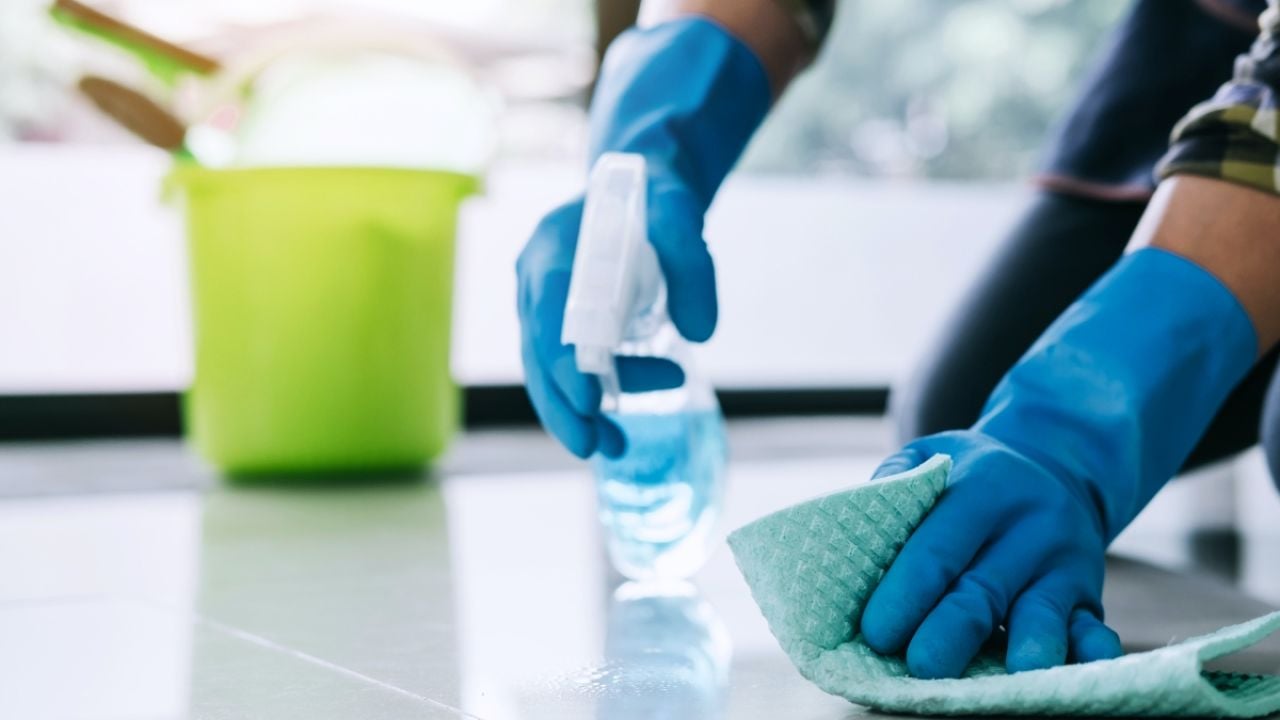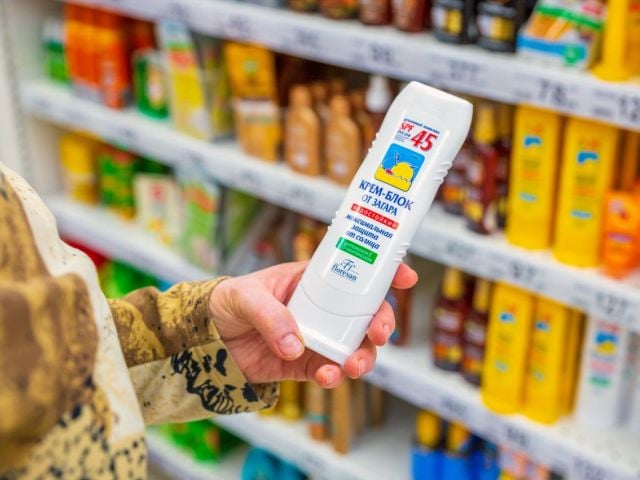
Whether your home is a minimalist’s haven or the epitome of maximalism, it requires regular cleaning. But many cleaning and maintenance products can contain the toxic “forever chemicals” known as PFAS.
You don’t want these chemicals lurking in your home, let alone sticking around forever.
PFAS, a family of thousands of chemicals used for their stain-repellent and waterproofing properties, build up in our bodies and the environment. And they’re known to cause a range of health harms: Small doses have been linked to cancer, reproductive and immune system harm, and other diseases.
Cleaners containing PFAS
Notable categories of cleaners that either may contain, or have historically contained, PFAS are:
- glass and hard surface cleaners
- fabric, upholstery, and carpet cleaners and treatments
- waxes and polishes for floors, furniture, cars and boat vessels
- dishwashing rinse aids
- aerosol propellant-based cleaners and air fresheners
- paints and coatings.
Floor sealers and finishes – products that cure into a film once applied – often contain PFAS. During floor stripping and waxing, PFAS concentrations in dust and air particulate matter were one order of magnitude greater than typical residential indoor air and two orders of magnitude greater than outdoor air, according to a 2022 study.
But now the cleaning products industry wants to keep consumers in the dark about the use of these chemicals in their brands. Earlier this month, a bill was introduced in Congress on behalf of leading household cleaning product makers that would deny Americans the right to know about toxic chemicals in cleaning products.
The manufacturer Reckitt applauded Rep. Larry Bucshon (R-Ind.) for introducing the bill, which would rob consumers of crucial information about the ingredients in their products. Reckitt makes popular household brands like Lysol, Woolite, Air Wick, Vanish, Calgon, among many others.
And industry giant S.C. Johnson called for a “clear federal standard” on disclosing ingredients, knowing any such standard could take a decade or longer. The company manufactures Glade, Drano, Pledge, Scrubbing Bubbles, Shout and Windex, along with many other products, including Ziploc.
The people most affected by PFAS in cleaners
PFAS emissions from cleaning products affect everyone. But workers, children, pregnant people, the elderly, patients, and those with weakened immune systems are the most at-risk.
Children are especially vulnerable, given their behaviors, size and developing bodies. They are exposed to chemicals applied on floors and surfaces during long hours at school and daycare.
And cleaning workers frequently use these products as part of their job duties and are disproportionately affected by PFAS in cleaners.
Alternatives to PFAS in cleaners
Forever chemicals are not essential ingredients in cleaning products. The European Union recognized manufacturers should be able to produce their cleaning products with alternatives to PFAS.
The European Chemicals Agency has proposed to regulate PFAS as a class of chemicals to reduce health risks, rather than on a substance-by-substance basis. EWG has long advocated for managing PFAS as a class.
Federal government must do more
Americans have a right to know about the toxic chemicals, including PFAS, in their household cleaning products.
Several well-established brands use chemicals linked to significant health risks, including cancer, in their cleaners. Instead of reformulating to eliminate cancer-linked chemicals, these companies are actively using toxic chemicals are actively opposing California’s landmark Cleaning Product Right To Know Act, which requires disclosure of these harmful ingredients.
This year, California Assemblymember Dr. Akilah Weber (D-La Mesa) authored Assembly Bill 727 to ban PFAS in household and industrial and institutional cleaners. Earlier this month, Gov. Gavin Newsom vetoed the bill, despite support from California legislators.
Avoiding PFAS in your home
The endless cleaning cycle of exposure means we can’t wait for the government to mandate safer cleaning products.
You can use EWG VERIFIED® cleaning products to rid your home of dust and dirt without using harmful PFAS or other toxic chemicals. More than 90 cleaning products with the VERIFIED mark meet our strictest standards for health and ingredient disclosure.
You can find more products listed in EWG’s Guide to Healthy Cleaning, which scores household cleaning products based on their ingredient transparency and toxicity relevant to human health and the environment.



